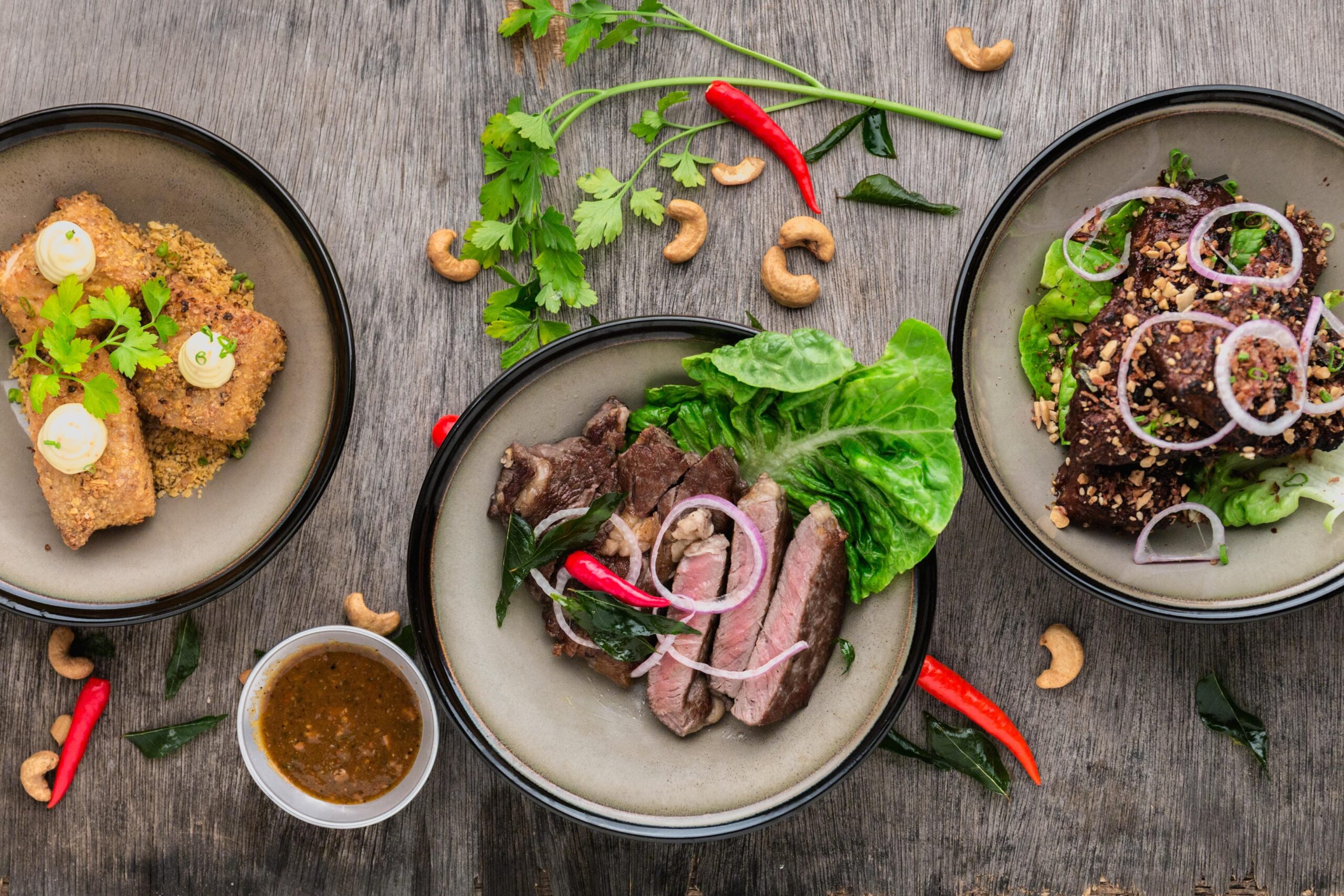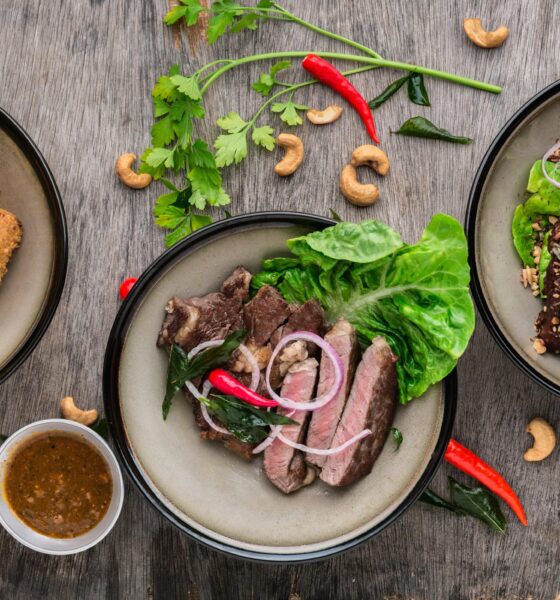When you’re looking for quick meals it’s tempting to grab tacos or whatever other fast food meals you can find. Many fast food chains have been offering healthy options for a while. However, even when a fast food meal is healthy, it’s probably not sourced sustainably.
If you’re looking for healthy, quick meals that use sustainable ingredients, here are some delicious ideas:
1. Create a large batch of salad with ingredients that don’t get mushy
It doesn’t take long for a typical salad to become soggy. For this meal idea, think of a salad as a combination of crisp fruits and veggies that won’t get soggy or wilt in the fridge. No lettuce allowed! If you don’t like eating raw vegetables, learn to prepare them so they won’t wilt.
The following produce won’t usually get soggy, even when covered in a light oil or dressing:
- Celery
- Carrots
- Beets
- Red, green, and yellow peppers
- Raw corn
- Cherry tomatoes
- Sugar snap peas
- Asparagus
- Hot peppers like jalapeño and serrano
- Onion
- Crisp red cabbage
Grab a bunch of your favorite crisp veggies from your local farmer’s market and chop them up. Combine them in a large bowl in the ratio you prefer and mix it up. Add a light balsamic dressing, tahini, or whatever dressing you like. Add some cooked quinoa for more texture and protein.
Herbs like parsley and cilantro can also be added for flavor, but if you add herbs, you’ll need to eat the batch within a few days.
Create a separate bowl for softer fruits and veggies like avocado, mushroom, zucchini, etc. Don’t add these directly to your giant salad. Instead, serve your salad and top it off with these items.
2. Look for sustainable meal delivery services
Unlike fast food, meal delivery services can be sustainable, organic, and delicious at the same time. For instance, Sun Basket is a popular organic, non-GMO meal delivery service started by award-winning chef Justine Kelly. The meals are simple and easy to prepare and Sun Basket is focused on sustainability. Unlike other services, the packaging and ice packs are recyclable.
Another sustainable meal delivery service is Purple Carrot, which happens to be a vegan meal delivery service. The meat industry tends to have a negative impact on the environment, so a vegan meal is already sustainable. In 2018, Purple Carrot made all of their packaging recyclable.
Other companies that use sustainable packaging include Terra’s Kitchen and Hello Fresh.
3. Eat vegan meals several times per week
The best way to create a sustainable meal is to source ingredients that don’t harm the planet. Whether you see eating meat as a moral issue or not, the meat industry often has a negative impact on the earth. Going vegan isn’t the only solution, but it does make a difference.
Approximately 30% of the world’s ice-free surface is used to raise grains and produce that’s fed to animals that are eventually slaughtered for food. Time Magazine reported that livestock production (meat, milk, and eggs) contributes 40% of all agricultural GDP and uses 1/3 of the world’s fresh water. Unfortunately, this mass production contributes to global air and water pollution and creates public health dangers from the overuse of antibiotics. There is nothing sustainable about the meat and dairy industry.
If you like meat, you don’t have to commit to a vegan lifestyle from now until eternity. All you have to do is replace a few of your regular meat-filled meals with delicious, healthy vegan meals. Vegan meals are often less work to cook than meat and sometimes don’t require any cooking at all.
4. Support your local farmer’s market or food cooperative
No matter what recipes you follow, buy your food from your local farmer’s market or food coop whenever possible. By purchasing food locally, you’re keeping local farmers in business. By sourcing fresh, organic produce from local farmers, you’re getting high-quality food and ensuring that food is available to others in your area as well.
5. Store your meals in mason jars or glass containers
Store your large meal batches in glass containers or individual wide mouth mason jars. If you take your meals to work, mason jars will be the perfect serving. If you’re serving yourself at home, just toss it all in a glass container and stick it in the fridge.
Challenge yourself
If you’re committed to supporting sustainability with food, challenge yourself to make changes in your daily routine. Go vegan for three days or a week and see how you feel. Reduce your dairy intake and try milk alternatives like soy milk, almond milk, and hemp milk. Try these meal suggestions and find recipe ideas online.
Challenge yourself to support sustainability until it becomes a habit.


 Environment11 months ago
Environment11 months agoAre Polymer Banknotes: an Eco-Friendly Trend or a Groundswell?

 Features10 months ago
Features10 months agoEco-Friendly Cryptocurrencies: Sustainable Investment Choices

 Features11 months ago
Features11 months agoEco-Friendly Crypto Traders Must Find the Right Exchange

 Energy10 months ago
Energy10 months agoThe Growing Role of Solar Panels in Ireland’s Energy Future





















